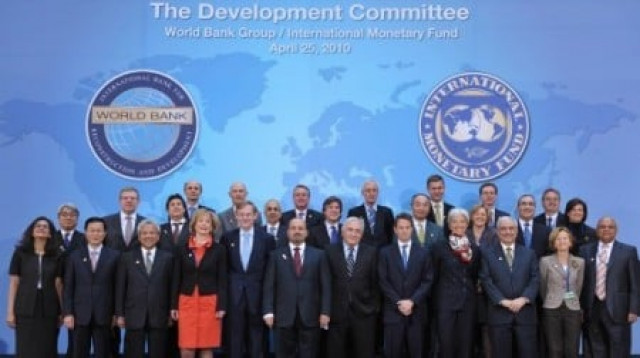WB elevates China voting power

WB elevates China voting power
Tokyo agreed to a marked decrease in its voting rights at the global financial institution, but one analyst said that Japan would remain a preeminent player at the bank along with the US and European Union members.
Chinese Finance Minister Xie Xuren welcomed the bank's vote reform, saying in a statement that it "represents an important step towards equitable voting power between developing and developed members."
Xie stressed however that the decision was "only part of the ongoing process" of giving emerging nations a greater say, the official Chinese news agency Xinhua reported.
The decision was hailed by World Bank president Robert Zoellick and other global leaders, but Brazilian Finance Minister Guido Mantega downplayed its importance and cautioned that "developing countries are still significantly underrepresented based on their weight and role in the world economy."
Zoellick defended the new arrangement in a press conference, saying the bank had "made important strides in increasing the voice and influence of developing countries."
The change "recognises that we need to consign outdated concepts like 'Third World' to the history books," he said, adding that the shift would not detract from Japan's important contributions to the bank.
"The first thing I would say is that Japan is number two and the US remains number one," he said. The United States will now hold 15.85 percent of the bank's voting rights while Japan will control 6.84 percent after accepting the biggest decline in share, leaving China with 4.42 percent.
US Treasury Secretary Timothy Geithner said the change in voting weights marked a justified shift of influence away from developed economies. "The new formula will better reflect the weight of the developing and transition countries in the global economy, while protecting the voice of the smallest and poorest countries," he said.
But Mark Weisbrot, co-director of the Center for Economic Policy and Research in Washington told AFP: "Developing and borrowing countries will not have a significant voice" at the bank, despite the change. "The reforms we need are not really happening" because the United States, Europe and Japan jointly hold a dominant position both at the bank and the International Monetary Fund, which has also mulled a transfer of voting rights.
China would make itself heard above all because Beijing's growing economic might gives it greater bargaining power, Weisbrot said.



















COMMENTS
Comments are moderated and generally will be posted if they are on-topic and not abusive.
For more information, please see our Comments FAQ